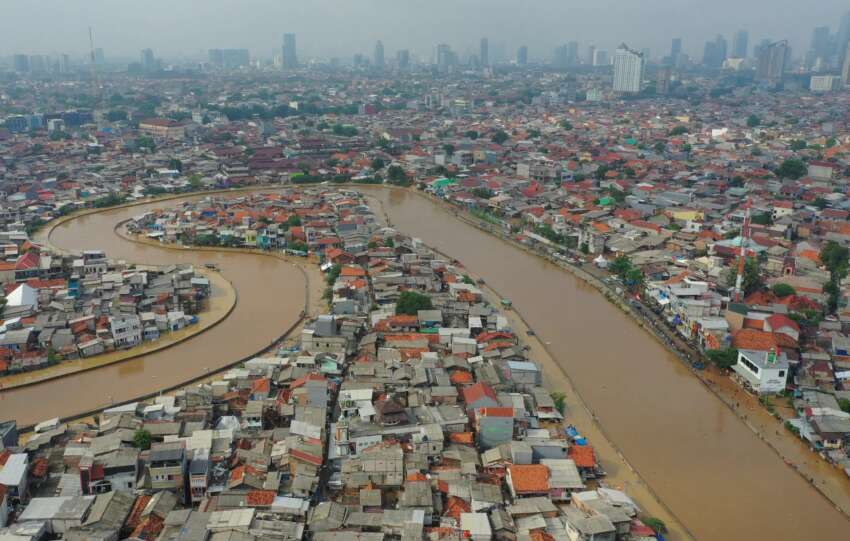Government, industry, individuals. The three players in the fight to save the planet and ourselves. But what role do governments really play, how can we influence and play our role within the current structures and how do we actually ensure that governments deliver on their pledges? Let’s look at political engagement.
One of President Biden’s first executive orders issued after his inauguration was to rejoin The Paris Agreement. This was in the same week that the UK officially left the EU and has already approved the use of bee-killing pesticides, neonicotinoids, which were banned across the EU after years of environmental campaigning.
How important are governments when it comes to the global climate crisis?
The role of government is exactly that – to govern. They provide leadership for their country, maintain order, provide public services and national security. They set taxes and decide how to allocate public funds. They set international policy, including trade agreements. They create the framework in which markets operate. Governments also have the power to pass laws.
The policies of our governments affect all aspects of our lives – education, healthcare, labour, transport and yes, climate action. Without government backing, fighting climate change is an insurmountable battle and for the most part, governments are the bottleneck to progress in halting climate breakdown. If the COVID-19 pandemic has shown us anything – it’s that governments have the power to react in an emergency and legislate quickly. If they do not act appropriately the consequences can be deadly.
And the Paris Agreement?
As of January 2021, 194 states and the European Union have signed the Paris Agreement. The decision to join, or not, is one made by the government. The Paris Agreement: sets out a global framework to avoid dangerous climate change by limiting global warming to well below 2°C and pursuing efforts to limit it to 1.5°C. It also aims to strengthen countries’ ability to deal with the impacts of climate change and support them in their efforts. But despite signing the agreement, many countries are not hitting their goals and upholding their commitments to prevent climate chaos.
“We have the technology and knowledge to make those emissions cuts, but what’s missing are strong enough policies and regulations to make it happen. Right now the world is on a pathway to between 3 and 4 degrees C (5.5 and 7F) by the end of the century.” Sir Robert Watson, former chair of the Intergovernmental Panel on Climate Change (IPCC) and co-author of the report that closely examined the 184 voluntary pledges under the Paris Agreement.
Radical action is needed. High-income “Global North” countries that have contributed to carbon emission levels steadily for decades need to lead the charge.
So, what can we as individuals do to ensure that our governments are making good on their promises?
In any democracy, governments are elected by citizens and their salary is paid with public funds. Ultimately – they work for you.
Watching Biden and Harris get sworn in at their inauguration, I was filled with emotions. The same emotions that swell every time I cast my vote at a ballot box – feelings of unity with fellow citizens, of hope for the future and of gratitude for the women who fought for my right to have my voice heard. But democracy and citizenship don’t start and end at the polls. Recent grassroots movements have shown us the power of community organising.
One such example is that of Stacy Abrams. After witnessing widespread voter suppression of the black community, Abrams co-founded the New Georgia Project, a group aimed at getting young Georgians of colour registered to vote. “The Abrams Playbook” was published in 2019, a 16-page document outlining a plan to get Democrats over the line in Georgia in 2020. Abrams and her network registered more than 800,000 voters in Georgia ahead of the election. The state flipped blue in the presidential election and was instrumental in securing the Biden/Harris win.
Marcus Rashford, a 23-year-old footballer has become a household name in the UK but not because of his sporting prowess – but for his tireless campaigning to end child hunger. After learning that the UK government had planned to end a voucher scheme for free school meals for children whose parents are struggling financially, Rashford raised an incredible £20 million for the charity FareShare. He campaigned and lobbied the government until they extended the scheme.
Local vs National Government
While every government is different, there are usually two routes to lobbying your government for change; locally and nationally.
National Government
> Know who your local representative is
– This person represents your constituency in national government
– Keep tabs on how they vote on environmental issues like the use of fossil fuels, plastics and their plans for reducing carbon emissions.
– Write to them and ask them to take action on the issues that you care about, whether that’s fracking or tree planting.
– Activist, Gina Martin recently shared a template, which was originally shared as part of a campaign to lobby the UK government to increase NHS worker salaries but the overall structure is very helpful for any letter you might want to send your MP.
> Vote in national elections
– Ensure that you are registered to vote.
– Read the parties manifestos, especially their stance on environmental issues, social issues and climate change.
– If party campaigners contact you or come to your house, talk to them about the environment. Ask them how their party plans to ensure that your country is going to meet its climate goals.
– Have a voting plan – know when the elections are, where your polling booth is and it’s opening times and whether you will be voting in person or by post.
> Sign petitions
– While petitions alone rarely change anything, they can be powerful as part of a larger campaign. The more names on a petition, the harder it is for a government to ignore. It sends a clear message – that people care about an issue and want their elected officials to do something about it. If you are in the UK, you can start by signing this petition to save the bees and reinstate the ban on neonics.
Local government
Not all decisions are made by the national government. Many are delegated to local branches who are responsible for managing issues for defined areas.
> Vote
– Voting is not just a once-every 4-or-5-years thing when there is a general election. There are local elections too and they make a difference.
> Join a local environmental group
– Non-profit, Friends of the Earth – is the world’s largest grassroots environmental network, uniting 73 national member groups and 5,000 local activist groups across every continent. With over 2 million members and supporters around the world, they campaign on environmental and social issues and promote solutions that will help to create environmentally sustainable and socially just societies. In the UK local groups are pushing for their local councils to;
1. Declare a climate emergency.
2. Develop a climate action plan for their locality.
– Extinction Rebellion – best known for using civil disobedience to attract the attention of governments, XR is a global group of climate activists that has three demands for governments around the world:
1. Tell the truth – Governments must tell the truth by declaring a climate and ecological emergency, working with other institutions to communicate the urgency for change.
2. Act now – Governments must act now to halt biodiversity loss and reduce greenhouse gas emissions to net-zero by 2025.
3. Go beyond politics – Governments must create and be led by the decisions of a Citizens’ Assembly on climate and ecological justice.
– SG Climate Rally in Singapore – a youth movement to stop climate change and achieve ambitious climate policy. They are pushing for collective action, systemic change and justice with the Singapore government.
I’ll leave you with some powerful words from the wonder woman that is Alexandria Ocasio-Cortez, better known as The AOC. “No one president is the answer. You are the answer. Mass movements are the answer. Millions of people are the answer. You are the answer. And so I need you. We need you.”
To watch the full speech, check out her video.



